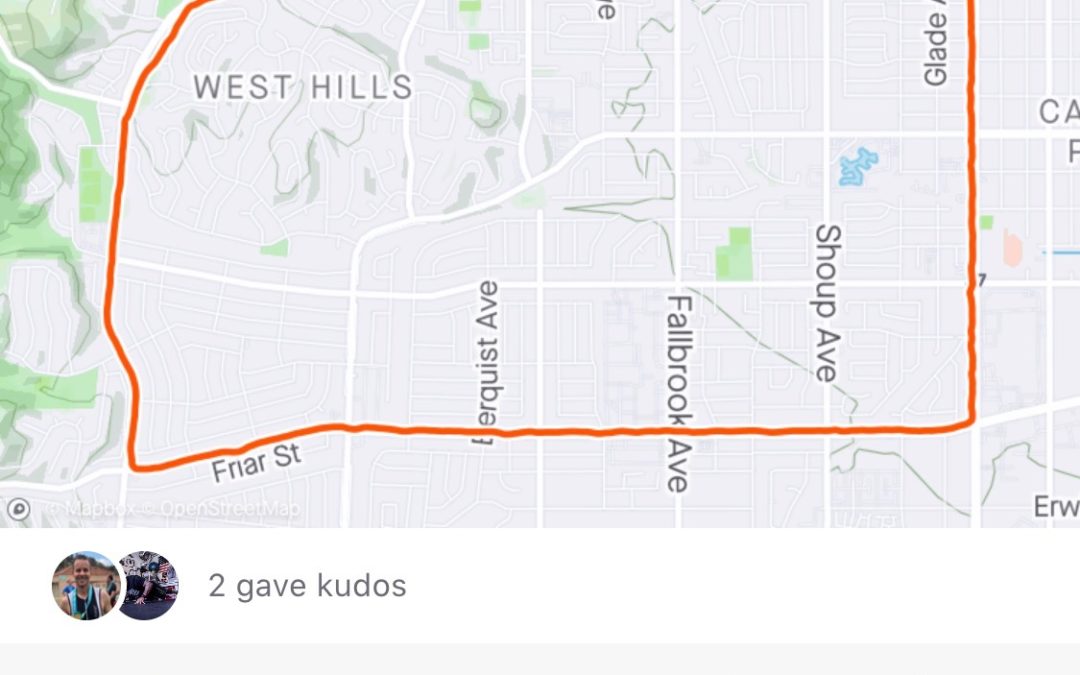What Should I know About Education and Recreation in Federal Prison?
When I surrendered to federal prison my main goal was to lose the weight that had bogged me down for so long. As I wrote in Lessons From Prison, I struggled to deal with the uncertainty over my white collar crime case. Rather than respond appropriately, I prevaricated and misled. I also put on weight. I knew federal prison was a golden opportunity to make progress on a number of fronts, including my fitness.
Like me, many people, including our federal prison consulting clients, want to use their time in federal prison productively. That could included participating in educational and recreational programs. Let’s start with educational programs in federal prison.
Let’s start with education!!
By participating in educational programs, federal prisoners can develop skills and credentials that translate into success. Those programs may be informal, without any type of certificate or credential. My friend, Shon Hopwood, taught himself how to research the law and how to file motions in court. There wasn’t any formal program to teach people legal research, but he learned on his own.
Similarly, when Michael Santos began serving his sentence, he reached out to connect with universities. Despite not have any financial resources, by writing, he opened opportunities that led to a bachelor’s degree and a master’s degree. Then, he leveraged those credentials to lead a productive life through the decades he served. As he described in Earning Freedom, he build a publishing career and launched other ventures from inside federal prison boundaries.
While serving my short federal prison sentence, I worked closely with Michael to author books and sow seeds that would lead to several successful businesses after I got out.
When there is a will there is a way. We recommend that people use their time wisely while in federal prison. A good use of time helps a person recalibrate, making all the difference in the world.
Each federal prison has an Education Department staffed by a Supervisor of Education (SOE) and several teachers. The Department is mandated to provide courses in basic literacy (ABE), classes that lead toward obtaining a high school equivalency diploma (GED), and classes in English as a second language (ESL).
Besides those basic courses, every federal prison offers a variety of vocational programs (VT). Some of the more popular VT programs include courses in picture framing, woodworking, culinary arts, electronics, and basic computer software applications. Finally, skillful prisoners may write a curriculum of their own and teach Adult Continuing Education (ACE) courses. People lead courses or workshops on writing, understanding the stock market, foreign language, small business management, and other topics.
With passage of the First Step Act, funding is supposed to be freed up to offer additional educational and vocational programming. We’ll report on that information in our course as the policies become available. We anticipate that more community colleges or universities will offer coursework for people in prison. Some prisons already have relationships with colleges, but that is an institution-by-institution arrangement.
Education in Federal Prison? Adult Basic Education Courses (ABE):
Many people may not know how to read or write when they start serving the sentence. The ABE courses are remedial in nature, helping get people ready for the GED program.
People that cannot verify educational credentials are required to take a simple test to measure their level of literacy. Administrators require those that do not score above the eighth-grade level to enroll in ABE courses. If they refuse to participate, staff may take disciplinary action or withhold privileges.
Education in Federal Prison?: High School Equivalency Course (GED):
Those functioning above the eighth-grade level, but don’t have a verified high school diploma or its equivalency are required to participate in the GED program. People who have a high school diploma or its equivalency ought to provide proof to the probation officer during the pre-sentence investigation.
If the PSR says, “defendant indicates he graduated high school,” BOP staff members may not consider that information sufficient to waive the GED-program requirement. The PSR must say that the probation officer verified that the offender has the required credentials in order to be exempt from the GED program. People in prison should be aware that some BOP officials will not accept a college degree as a substitute for the high school diploma. Staff members can be sticklers for policy.
People that cannot verify they attained high school equivalency are prohibited from earning higher than a grade-four on the inmate pay scale. Essentially, that means the person is limited to earning less $20 per month, regardless of which job he performs or how well he performs it. If a person doesn’t have a GED, or at least participate in programs that lead to the GED, the prisoner may lose access to good time, too.
Again, the First Step Act incentivizes people to participate in educational programs. Our team believes that participating in educational programs—whether independently or through structured courses—is an outstanding way to prepare for success.
Education in Federal Prison? English as a Second Language Course (ESL):
A BOP publication indicates that 31.6 percent of the population is of Hispanic origin, and 30 percent are foreign nationals. The BOP offers courses to help those people learn how to speak English.
Vocational Training Programs (VT):
All federal prisons offer a few VT programs. They have structured curriculums mixed with classroom instruction, as well as “live-work” projects. For example, in the wood-working program prisoners participate in several weeks of classroom and shop instruction. Then, those who develop skills build cabinets for various offices around the institution. They may repair desks or install bookshelves. All of the VT programs result in certificates. Some of the VT programs are extensive, requiring as many as 8,000 hours to complete. The successful participants may earn accredited journeyman’s certificates.
As with jobs, there may be long waiting lists to participate in VT programs. The BOP offers people an opportunity to transfer on a temporary basis to institutions where specific VT programs may be available. After the individual completes the program, he usually will return to his institution of origin.
Education and Recreation in Federal Prison? Adult Continuing Education Courses (ACE):
Some of the men in each prison have advanced skills and they create courses to teach others. The system allows ACE instructors to teach on a volunteer basis. Teaching an ACE course does not excuse the instructor from his obligation to hold a prison job
Leisure Library:
The Education Department also oversees the leisure library. Some libraries stock well over 10,000 books, but others have paltry libraries. The libraries grow from donations. People donate books they receive from family. Besides books on the library shelves, most libraries participate in the inter-library lending program. Through that program, a person can request books that may not be available on the bookshelves.
Besides offering books, libraries may also subscribe to newspapers and magazines. Sometimes they make courses available. Reading and learning provides a mental escape to the monotony of prison. And with the First Step Act, documenting progress can lead to additional privileges.
Law Library:
Besides the leisure library, each federal prison offers a relatively extensive law library. It offers the Federal Supplement, Federal Reporter, and Lawyer’s Edition series of books through a digital platform. People can learn from published decisions from the district courts, appellate courts, and Supreme Court. It also offers the Shepherd’s Citation series and other supplemental reading to help individuals keep abreast of changes in the law. It’s difficult for people to litigate from inside the fences. Yet with the law library, it’s not impossible, as our partner Shon showed.
Recreational Programs:
Prison offer a variety of indoor and outdoor recreational facilities. Depending on security levels, it’s like a high school track-and-field area, with a lot of fences and without members of the opposite gender. Older prisons offer extensive weight-training facilities. Newer prisons may not have weights, but they may have strength-training machines. Some gymnasiums offer aerobic machines and racquetball or handball courts. They also have game rooms with pool tables and card games.
Prisons have softball fields, soccer fields, and volleyball courts. There’s also a running track and basketball courts. I became a long distance runner in federal prison. I continue running long distances to this day.

What Should I know About Education and Recreation in Federal Prison?
I did not participate in organized sports. I have written why in the past, including in Lessons From Prison. The prisons organize teams, usually according to housing units, that participate in seasonal sports. The best players come together to form varsity teams and staff from the Recreation Department may coordinate with community groups to organize teams from outside to come and play against the people inside.
The Recreation Department has a role inside the housing units, too. Each housing unit has several televisions, usually wall mounted. The audio is broadcast on FM frequencies and people listen to television through their Walkman radios.
Hobby-craft Programs:
Besides sports, the Recreation Department also sponsors several hobby craft programs. Depending on the prison, courses in leather craft, acrylic and oil painting, drawing, pottery, ceramics, and other programs may be available. In crowded prisons, programs may have extensive waiting lists. Administrators sometimes limit the quantity of time individuals can spend in them. Ordinarily, rules require people to send their completed hobby craft projects home.
As people pass years away from their communities, family, and loved ones, they need activities to keep their minds and bodies active. Education and recreation programs help reduce some of the tension that inevitably comes with confinement. They also provide opportunities for people to enrich their lives, developing skills that will remain with them even after confinement ends.
Prisoners may enter the system in poor physical condition and with substandard education levels. With discipline, they can develop routines that lessen stress and improve their quality of life. Growing in an environment marked by adversity builds character and self-esteem.
Justin Paperny

